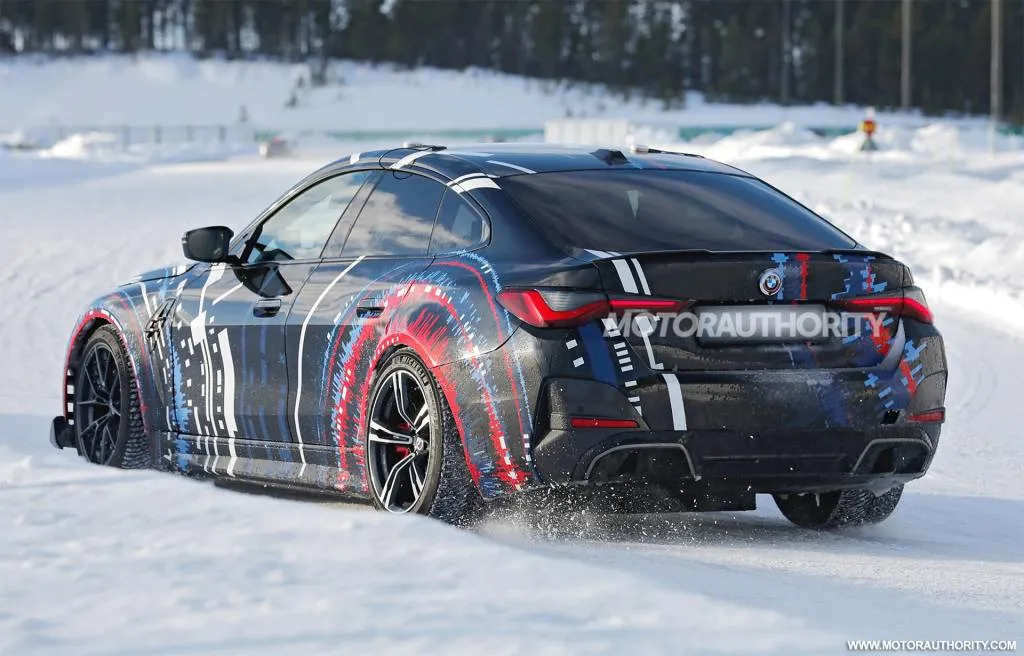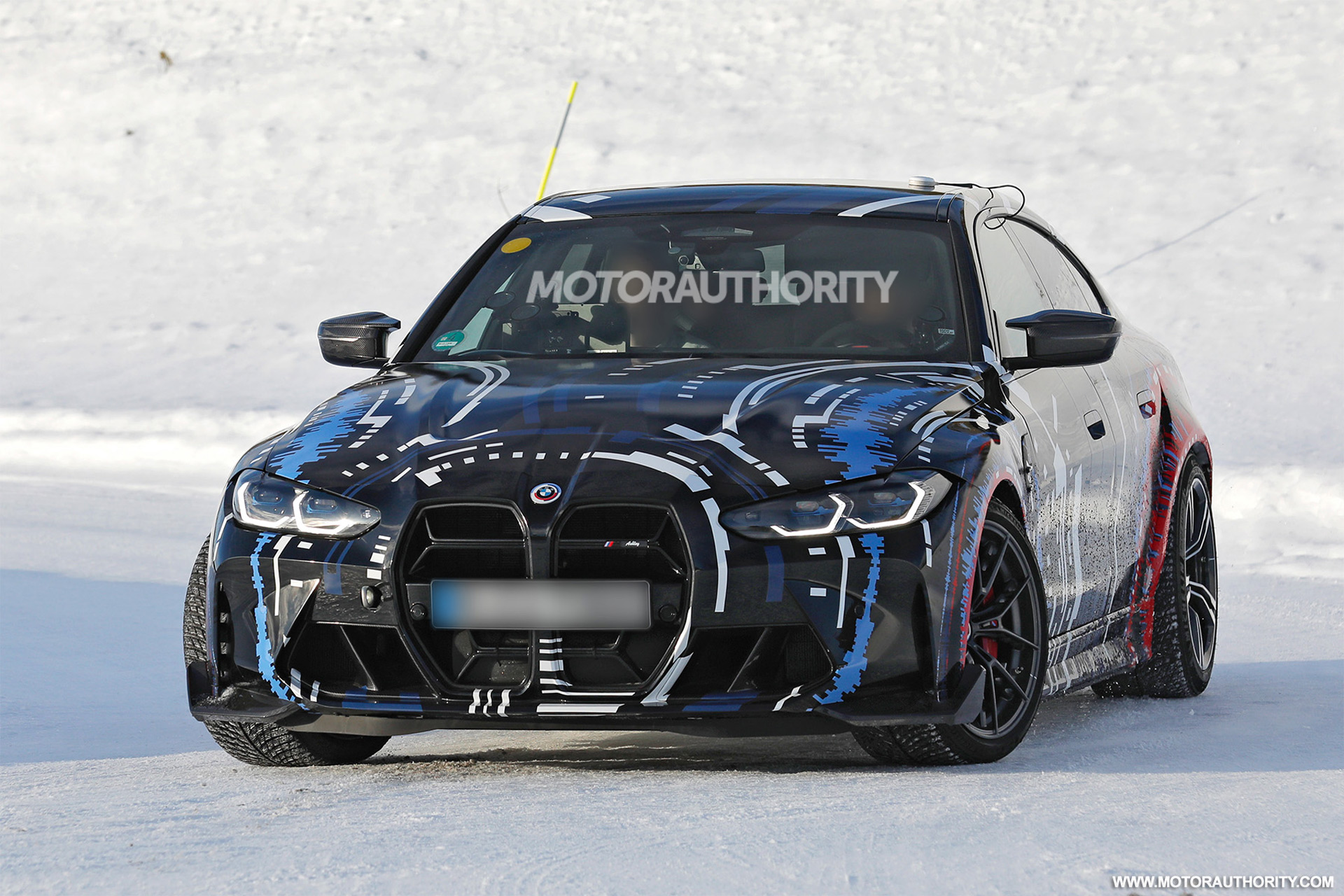BMW has committed itself to electric mobility, and that committment extends to the automaker’s BMW M performance division.
The BMW hot house has already introduced the i4 M50, i5 M60, iX M60, and i7 M70 M Performance models, but for the main course—i.e. a dedicated M car—it is exploring a major step up in performance.
BMW M as early as 2022 announced it was testing a quad-motor electric powertrain and a related chassis control system designed to direct power where it is needed. It revealed at the time a powertrain test mule wearing the body of the i4 M50 but with elements from the M3 and M4 to help improve cooling and torsional rigidity.
A more advanced version of the test mule has now been spotted cold-weather testing. It features a number of unique elements like the grille and the rear diffuser, and there’s no missing the swollen fenders, which are required to make space for the electric motors. There are two motors at each axle, allowing for each of the wheels to be individually controlled.

BMW M quad-motor powertrain test mule spy shots – Photo credit: Baldauf
The individual control makes it possible for precise and infinitely variable torque distribution. Using various sensors, as well as driver inputs via the steering angle and position of the accelerator pedal, the torque distribution can be optimized to suit the conditions, for example providing extra grip on slippery surfaces or helping the vehicle remain stable through a curve.
The powertrain is also being developed to deliver linear power delivery, something BMW M has said is a core characteristic of its vehicles. This means BMW M’s electric vehicles might not shove an occupant’s head back like many of the big-power EVs on sale today. An example of this linear power delivery has already been introduced in the Rolls-Royce Spectre.
No details on the battery being used for tested has been divulged. BMW is known to be preparing a sixth-generation battery design for its upcoming Neue Klasse EVs, and these could potentially feature in the first electric M car. The batteries feature cylindrical cells (instead of the current prismatic cell design), and together with other improvements should result in a range improvement of 30% over BMW’s current EVs.
BMW M hasn’t said when its first electric M car will arrive. There are rumors this test mule may actually be a prototype for a future i4 M, though the powertrain being tested here may instead be for an M version of an upcoming Neue Klasse vehicle. There are also rumors the next M5 will offer an electric powertrain as an alternative to a standard V-8 hybrid setup.
